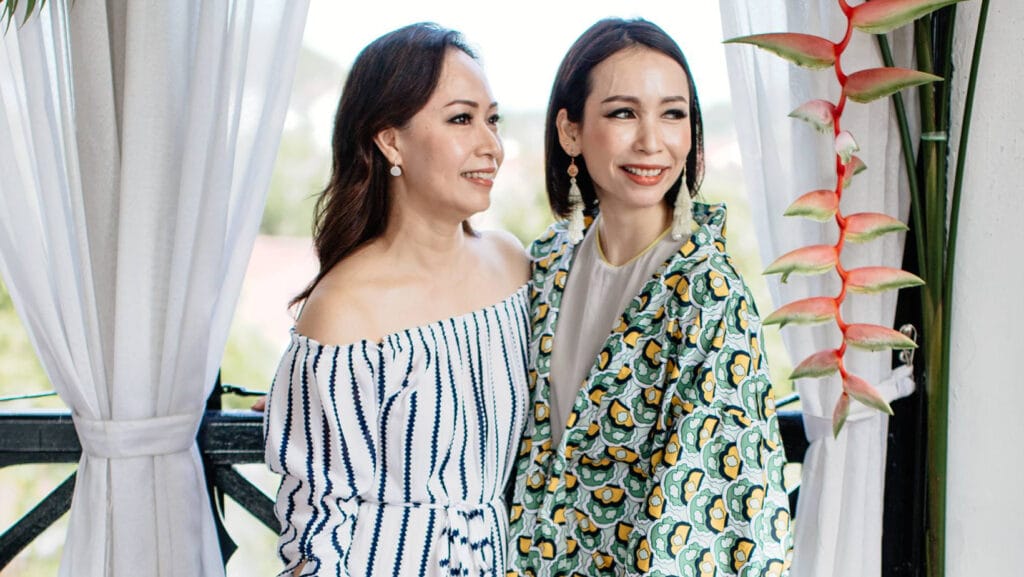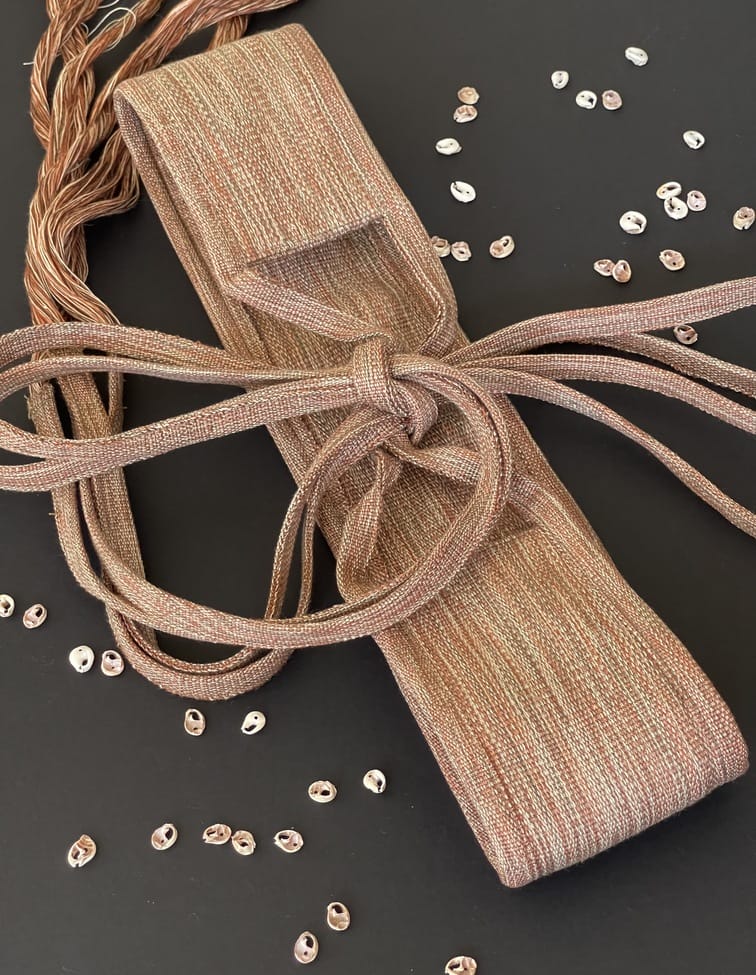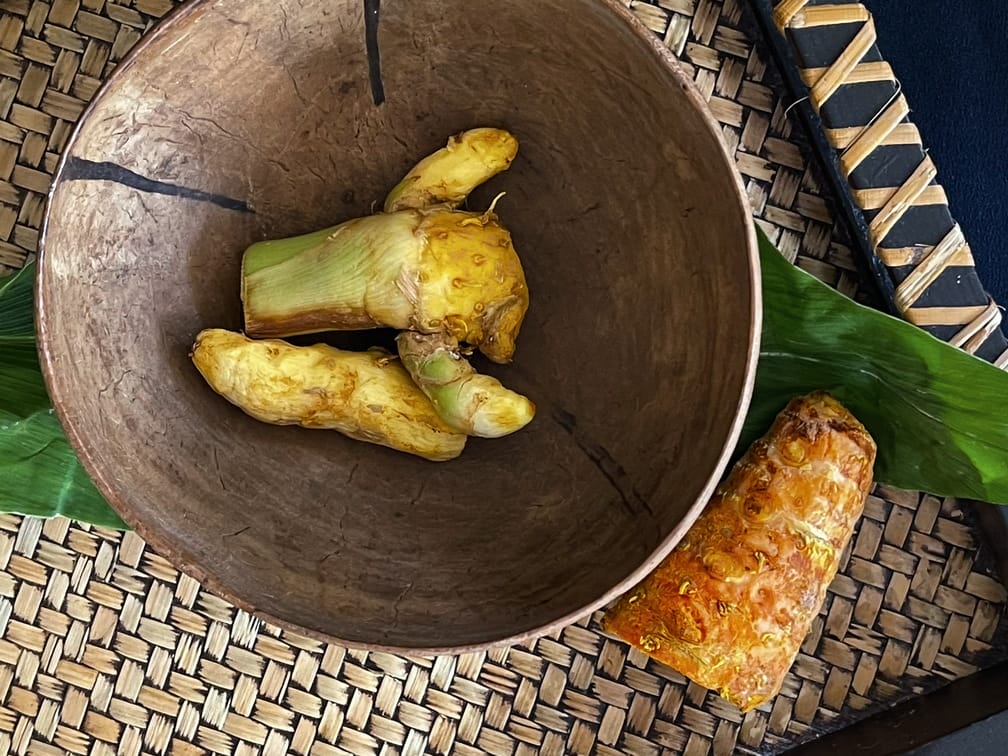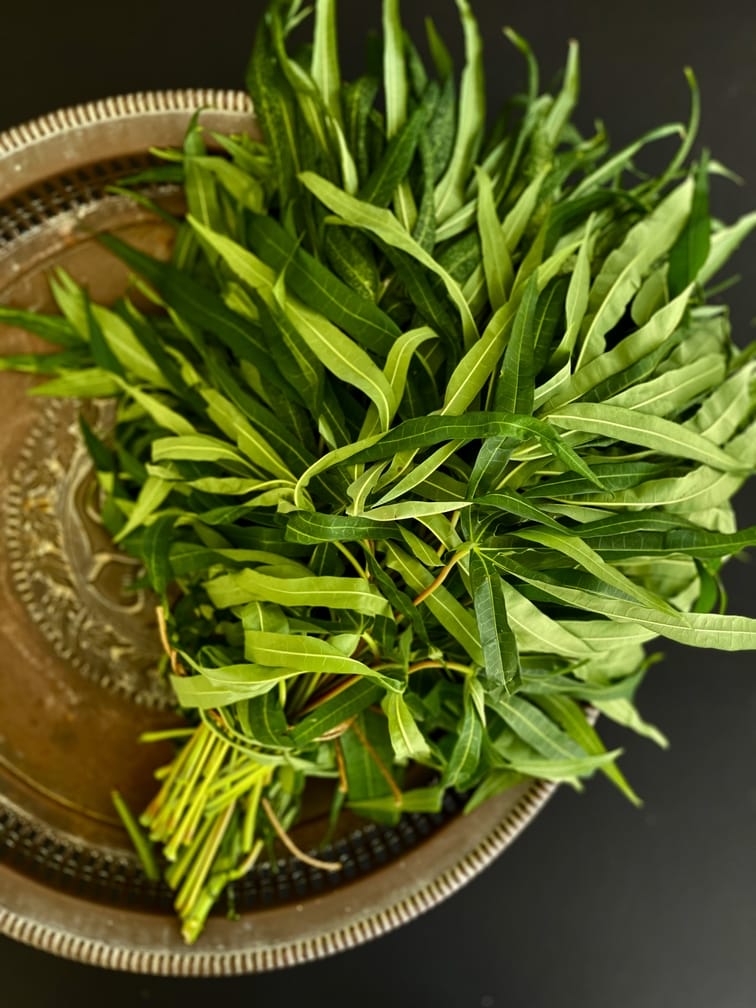
Melia Linggi (left) with sister Sereni
The diverse state of Sarawak is home to 27 ethnic groups and is rich in culture, oral traditions, rituals, performing arts and traditional craftsmanship. The need for heritage preservation is not only necessary but paramount in helping maintain and shape identities in today’s global world. Melia Linggi of the Tun Jugah Foundation – an organisation based in Kuching that promotes and preserve Iban culture, arts and language – hopes to take her work and efforts even further with the introduction of Olah Idup, a digital lifestyle platform that aims to highlight forgotten practices of her ancestors, as well as share stories and folklore relating to Iban culture. She tells us all about her new project here.
What inspired you to set up Olah Idup?
“It was a natural progression from the pandemic-induced situation the whole world is in at the moment. The lockdown and restrictions meant our museum remains closed to visitors since March 2020. The Tun Jugah Foundation that I work for has always provided weaving and beading lessons, internships for students, a research facility for visiting scholars, intricately woven textiles for collectors and customised handicrafts as gifts and keepsakes.
After 36 years of research, there is an abundance of information available about our customs and traditions in our publications and archives collection. It’s a shame not to share it with our younger generation and with those who are interested in our Iban culture. The idea also stemmed from my recreating traditional wedding attire for my relatives over the years, ensembles infused both contemporary and heirloom pieces together. When those were deemed well-received by our Iban elders, I began experimenting with traditional methods to create our handicraft with modern materials.
On top of that, I felt the need to provide curated and easy access to traditional knowledge support and hopefully, interest for the creative Iban younger set out there. No matter whether they are beginners or professionals in their field.

Landik focuses on the craft of weaving and beading, and carving and tattooing.
Can you share what each category is about?
There are five main categories. Rami covers our classic dietary favourites. Landik showcases our skills derived from the necessary daily and leisure activities of the community. Likun focuses on our living spaces and environment, Lis on our well-being and Alus on our accessories and adornment.
Is it a content-only site or will it include e-commerce?
It aims to become both in the near future. As each item is handmade, we try to maintain and assure quality pieces before we offer them onto this platform. We share traditional knowledge about what inspires us to produce the items and hope it will trigger similar responses and get the viewer’s creative juices flowing.

Lis, meaning smooth, focuses on well-being
What are some of the things we can look forward to on Olah Idup in the near future?
We will introduce limited items made by Olah Idup collaborative designs. We will also provide easy-to-assemble kits for those who are interested in creating their own pieces instead of purchasing a finished product.
We have started out with local, individual collaborations who are quite supportive of our efforts to create awareness and introduce Iban lifestyle products. At the same time, helping them promote their brands and their cause. In time, as we grow and hopefully expand, being accessible to all Iban related traditional knowledge and being able to direct inquiries to relevant experts is what we would like to achieve online, as we have been doing at the Tun Jugah Foundation all these years.
How has your life been amidst the pandemic? Is there anything new you’ve learnt about yourself?
It’s never a dull day at the office or working from home for that matter. After over a year and a half, adjusting to virtual meetings, the slow pace of R&D of products, coordinating logistics amidst delays has been challenging. Within the past year, I have discovered that the pandemic has given me a green thumb. My garden is now a thriving ethnobotanical one – plants for natural dyes, indigenous fruits and vegetable experiments have since sprouted.

Rami honours the traditional use of Iban ingredients by incorporating them into new ideas
Is there any good thing that has come out of the pandemic for you?
I’m lucky to have my siblings and father nearby. Adjusting to not being able to travel has been tough and I’m sure I’m not the only one. This unprecedented crisis has made friends become closer and strengthen family bonds.
How do you practise positive thinking and cultivate wellness at this time?
With grace and gratitude guidelines. And everything in moderation. Having empathy and finding humour is also necessary for peace of mind. We are all united in fear of this pandemic so remember to be kind to yourself while being aware of your own capabilities of how to help others.



